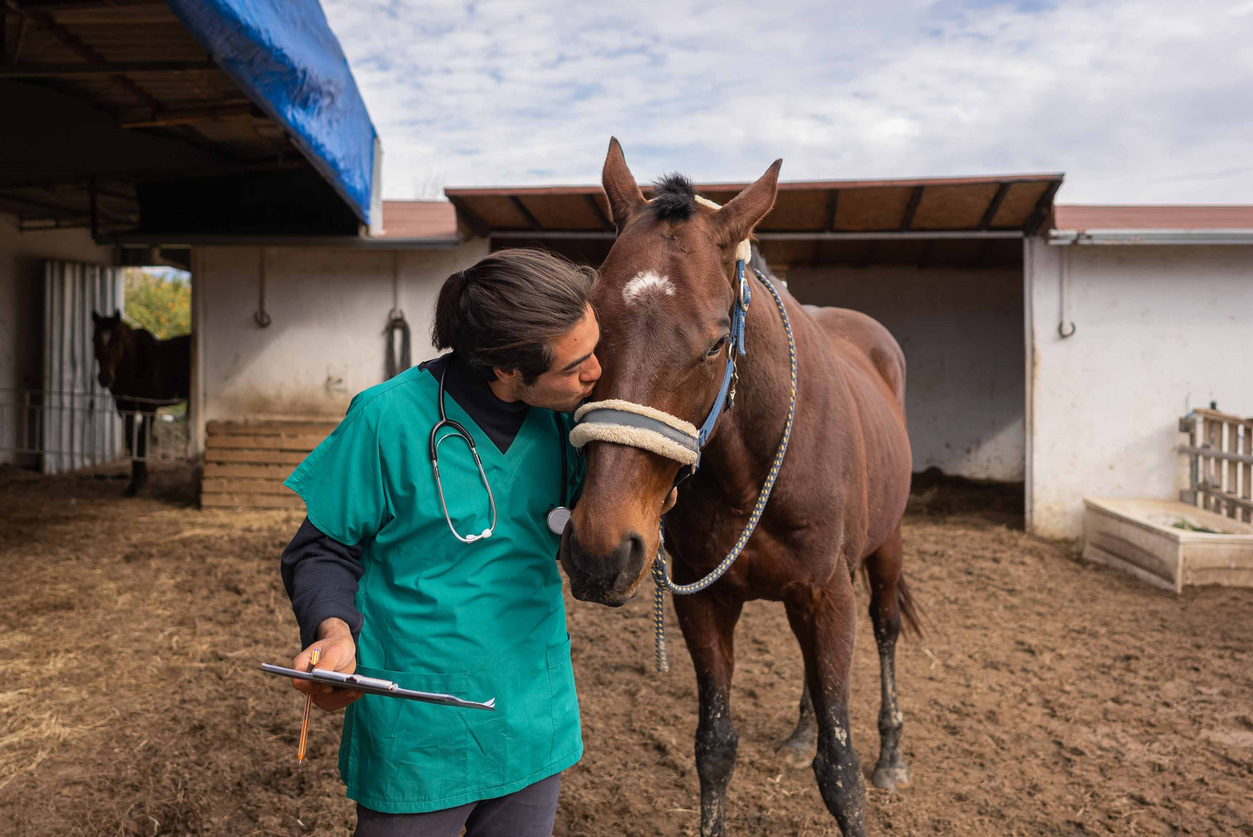While remote and flexible working was a novelty for many people working in offices when the pandemic hit, it was nothing new for our equine veterinary colleagues.
Caring for horses at ranches or rural stables is an essential part of the job. It requires animal experts who are able to work autonomously, doing everything from using vet appointment management software to manage their time to directly caring for the horses.
They also need to be able to adapt to all kinds of different working environments and be able to access their vet scheduling tools where connectivity might well be a challenge.
This unpredictable working environment can be tough. Human nature thrives on consistency and patterns, so the sense of chaos can have a destabilizing effect on vets’ sense of well-being.
Here are five ways you can provide security and consistency and help to ensure that veterinary professionals in the field are able to deliver high levels of equine care, wherever they may be.
1. Ensure excellent communication
Out of sight isn’t out of mind. Check in with your veterinarians in the field regularly to give them physical and mental health support when they need it.
The personal connection will make them feel heard and valued, and it builds loyalty to your practice.
Encourage the veterinarians to communicate with each other, too. Just because they make solitary visits to support the health of horses doesn’t mean they have to feel alone. Make communication channels available, visible, and transparent.
Provide the tools they need to be able to communicate easily with each other, and encourage them to use it.
2. Provide accessible technology that works
It’s safe to say that veterinarians don’t go into veterinary medicine for the administrative side of the profession.
So, the more tools you can provide to help them to do these tasks efficiently, the more time they have to focus on providing wonderful care to their patients.
This is where smart veterinary practice tools come in handy.
If your mobile veterinary employees can rely on a horse appointment app to help them get to where they need to be, given the hard-to-find locations of some of the patients, this will save them a lot of time.
Knowing that reliable equine appointment software will keep their schedule on track will also free up the mental space to do what they love to do – looking after the animals.
3. Get together in person
Getting together as a team occasionally to socialize and celebrate each other can do wonders for mobile veterinary professionals’ well-being and job satisfaction.
You can use these opportunities to remind your staff of the practice’s values and vision.
This will help everyone to maintain the high and consistent standards you expect to provide for your patients.
But remember that it’s a two-way street.
Give the team a chance to give feedback on how they’re finding working life. This is valuable insight to help you improve your practice and the service it delivers.
Your team can also use time spent together to share solutions to any problems they’re experiencing.
You can encourage this by providing a safe, face-to-face environment, where they’re made to feel supported and listened to.
4. Embrace diversity
The place of work for your equine veterinary employees will vary vastly from day to day.
To begin to adapt to this unpredictability, expect that there will be individuals with very different ways of working.
Recognizing and supporting these differences can boost staff morale and help encourage loyalty to your practice.
You can build on this by having adaptable technology that can be personalized to individual workflows.
For instance, staff can use veterinary scheduling tools that allow them to build flexible schedules that fit with their lifestyle and changing working patterns.
These tools will help them to be more efficient, so that they can spend more time providing the highest levels of care to their patients.
Gone are the days of being forced to operate around standardized workflows that are at odds with how they naturally work!
5. Bottom line: Build a culture of trust and responsibility
To best enable mobile veterinarians to be truly and successfully autonomous, build a culture of trust and responsibility.
This means providing the freedom and veterinary practice tools they need to do their job well.
You can support this by making your practice values and expectations of high-quality standards clear. Trusting them to work within these boundaries, and being on hand to provide support when they need it, is crucial.
Providing equine appointment software that takes away the admin burden so that they can focus on providing patient care is also key to supporting your veterinarians’ autonomy.
Want to explore how equine veterinary software can liberate your mobile veterinary staff? Learn more about Provet Cloud here.


